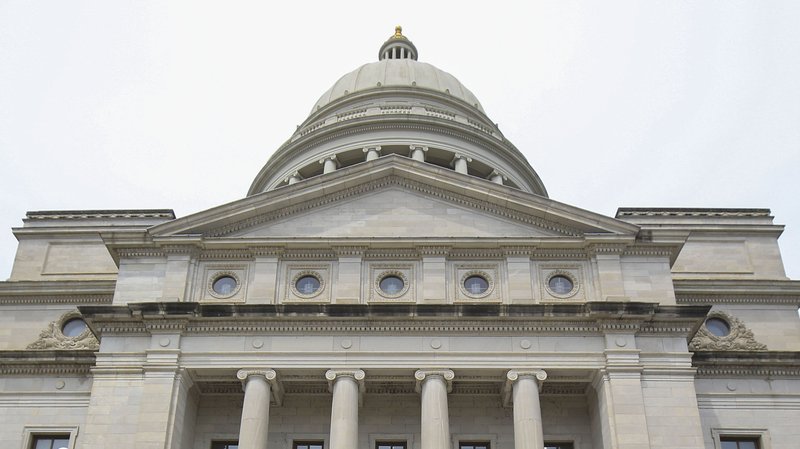House lawmakers approved a retooling of the state's private-option Medicaid expansion program on Tuesday, sending the bill to Gov. Asa Hutchinson, who is expected to sign it.
The Arkansas Health and Opportunity for Me Act, or Senate Bill 410, would do away with the work requirement for expanded-Medicaid recipients passed by lawmakers four years ago. That program, known as Arkansas Works, faced legal challenges that ultimately resulted in the work requirement being blocked by the courts in 2019.
Instead of a traditional work requirement, the proposed "ARHOME" plan aims to incentivize work and education through access to government-subsidized private health insurance plans.
Enrollees who fail to meet work or other criteria set out by the state Department of Human Services would be transferred to lower-cost traditional Medicaid plans, also known as fee-for-service.
The legislation was able to overcome some Republican opposition as it passed through the Senate and a House committee this month. The House voted 64-34 on the bill Tuesday.
The House sponsor, state Rep. Michelle Gray, R-Melbourne, said she opposed Medicaid expansion when it was first passed by lawmakers in 2013 under the federal Patient Protection and Affordable Care Act, also known as "Obamacare."
After being elected to the House and serving on a health care task force, Gray said she began to see the continuation of Medicaid expansion as critical to keeping rural hospitals and doctor's offices open.
"Even though I might disagree with some of the things that this does philosophically; functionally, pragmatically, for the state of Arkansas it makes sense for us, it works for us," Gray said.
Under Arkansas' private option Medicaid expansion, health care providers are paid higher reimbursement rates for services than they are under the traditional Medicaid fee-for-service model.
Supporters of the program have touted those higher rates as helping to keep rural hospitals open. Gray noted that Arkansas had only one rural hospital close after expanding Medicaid, while surrounding states that opted not to expand Medicaid saw dozens of hospitals close.
Opponents of the plan, however, argue that the private plans are more expensive for taxpayers and leave fewer services for other Arkansas on Medicaid.
"There are people, our most vulnerable, our disabled, our elderly, are finding it harder and harder to get access to care because we have fewer and fewer doctors and specialists and so forth that are taking traditional Medicaid patients," said state Rep. Josh Miller, R-Heber Springs. "They'll take all of the Medicaid-expansion insurance patients that they can get."
Miller has proposed alternate legislation that would keep the Medicaid expansion program while moving all of the enrollees to a traditional fee-for-service model.
A purely fee-for-service model would cost about $180 million less in state funds over a five-year period, according to estimates by the Department of Human Services.
However, such a model would also see about a loss of about $3 billion in federal funds -- which cover 90% of the cost of the Medicaid expansion -- taking with it about $310 million in state and local tax revenue, according to DHS.
Hutchinson expressed his support for SB410 when the legislation was filed earlier this month, and called on President Joe Biden's administration t0 approve the waiver that would allow the state to enact work incentives for the program.
According to state Human Services Secretary Cindy Gillespie, some enrollees may also be able qualify for private health plans by meeting other health-based criteria rather than work. She gave the example of a pregnant woman meeting the criteria for her plan by attending prenatal checkups.
More than 300,000 Arkansans are enrolled in the state's Medicaid expansion program. Income eligibility for the program is capped at 138% of the federal poverty level, which is $17,774 for an individual and $36,570 for a family of four.
